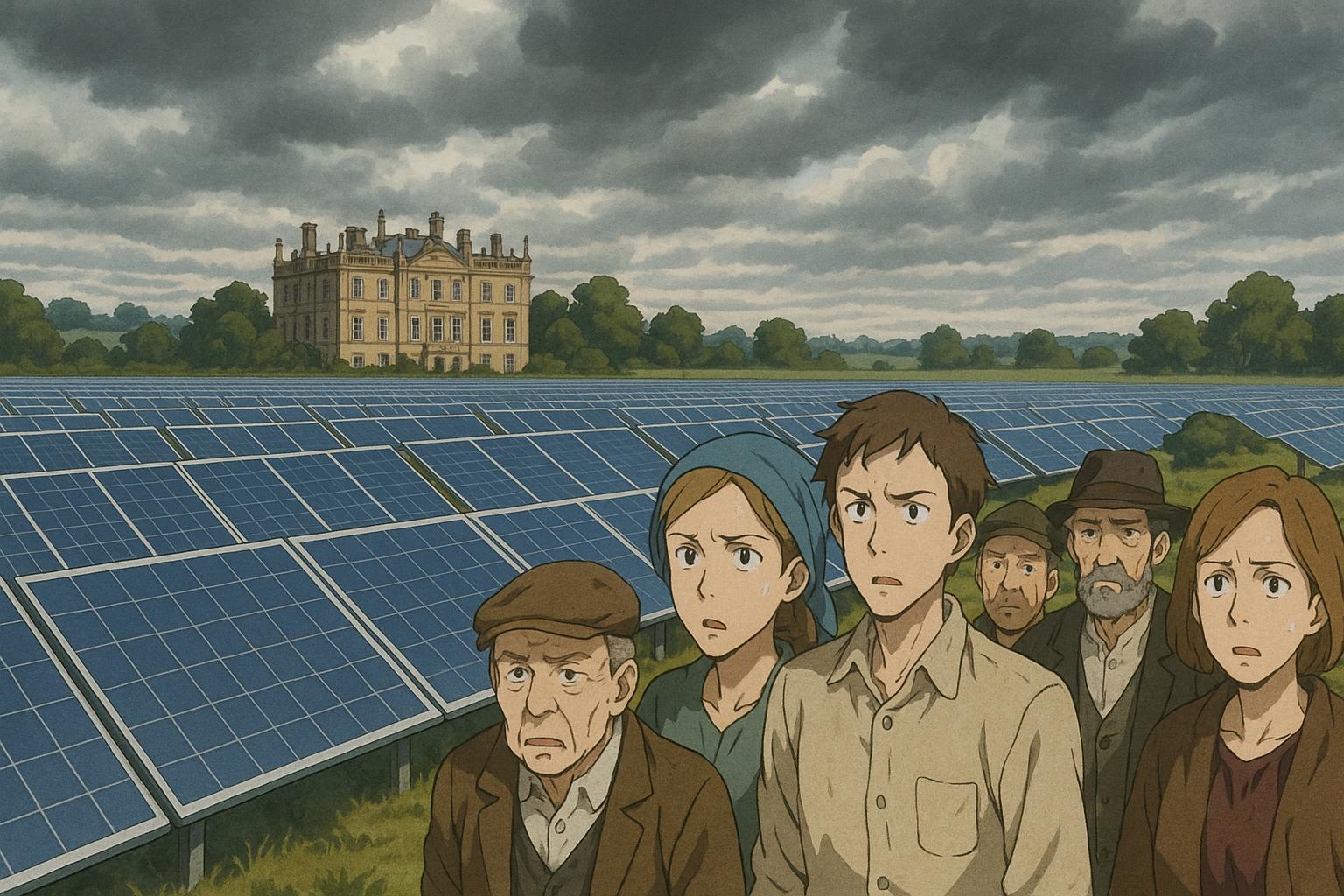A billionaire hedge fund manager's ambitious plans to establish a solar farm near his stately home have ignited significant opposition from the local community. Chris Rokos is seeking permission to convert 40 acres of North Park, located near Marlborough in Wiltshire, into a vast array of solar panels to power his 100-room estate, Tottenham House. The initiative is part of Rokos’s broader goal to decarbonise the estate, which he describes as an effort to create a sustainable energy source for its future operations.
However, the proposal has been met with sharp criticism from residents, who are particularly concerned about the potential impact on water supply in the area. Great Bedwyn Parish Council has formally objected, citing fears that the new water mains connection and the creation of a drainage lagoon could lower local water pressure. In their objection, they urge Wiltshire Council to seek assurances from Thames Water that the project will not adversely affect the existing mains water supply for local residents.
Rokos’s plans include the installation of a photovoltaic (PV) array expected to generate approximately 688 kWp of energy, which he claims would reduce the carbon emissions produced by the estate and meet around 28% of its future electrical requirements. The project, outlined in a planning statement, comes in a context where developments of solar farms, though often aimed at promoting renewable energy, frequently face backlash from nearby residents concerned about visual disruption and environmental concerns.
The situation is not unique to Rokos's proposal; similar tensions have arisen in Wiltshire over other solar projects. For instance, a 200-acre solar farm near Chippenham, recently approved in March 2023, faced significant pushback over its visual impact, even as it promised to produce enough electricity for approximately 14,000 homes and contribute significantly to CO₂ reduction.
Moreover, a petition opposing a proposed solar farm spanning 2,000 acres has gained traction among residents, highlighting fears over safety and increased traffic during construction. Opponents of these projects often underscore the need for solar farms to be situated on less agriculturally valuable land to preserve the rural landscape. The Campaign to Protect Rural England (CPRE) has also raised alarms about the rising number of solar farms transforming parts of the countryside into semi-industrial landscapes. They argue that an uncoordinated approach to these developments risks undermining both visual amenity and agricultural integrity.
In a historical context, the sentiment against such solar developments echoes previous refusals in the region. A 44MW solar farm proposal was denied planning permission despite being backed by local planning officers, largely due to concerns over its size and visual intrusion. Similarly, plans for one of the UK’s largest solar farms were rejected by Wiltshire County Council, despite its projected environmental benefits, demonstrating the balancing act that local authorities must navigate between advancing renewable energy and protecting community interests.
As Rokos awaits a verdict from Wiltshire Council this summer, the community remains vocal about the implications of his proposed solar farm. The circumstances encapsulate a growing debate across the UK regarding the viability of solar energy projects in rural settings, weighing the urgent need for renewable energy against the need to preserve local landscapes and communities.
Rokos, who is the Founder and Chief Investment Officer of Rokos Capital Management, has faced similar opposition in the past with projects that have transformed historic buildings, raising questions about the community's relationship with affluent newcomers. While his solar farm ambitions might align with global sustainability goals, they also highlight the complexities of balancing progress with local concerns in rural England.
Reference Map:
- Paragraph 1 – [1]
- Paragraph 2 – [1], [2]
- Paragraph 3 – [3], [5], [7]
- Paragraph 4 – [4], [6]
- Paragraph 5 – [1], [5]
Source: Noah Wire Services
